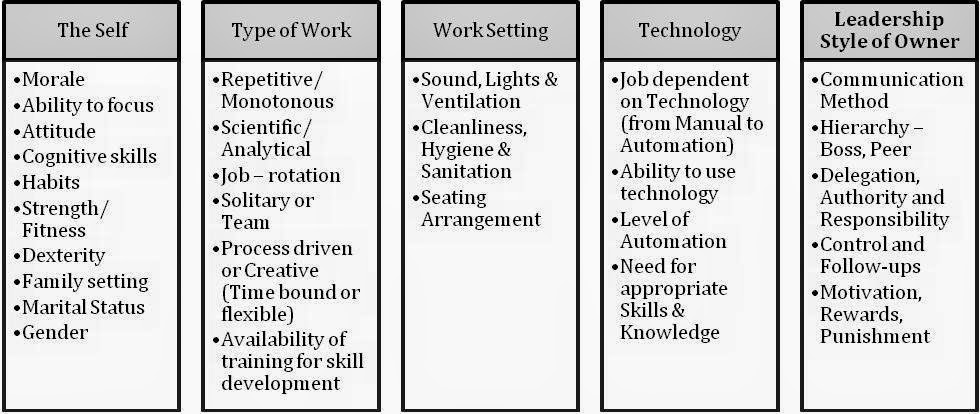Published in TISA July 2014
While operating your business, you think about margins, ROI, cost of
capital/ borrowings, payables and receivables, “cost” in multiple terms but how
often do you think of productivity? Maybe not as often as you should!
Productivity lies at the core of any business; it can be a driver or an impediment,
a source of curtailing waste or increasing it thus hitting your costs and
margins. Productivity is simply a measure of output based on
utilization of per unit input. It is the calculation of how quickly and
efficiently can a system generate outputs. This can be
based on man hours utilized or per kg of material used or even the capacity
utilization of a machine.
For example: Tailor A is
able to make a standard pre-defined design and size of school shirt in 60
minutes using a machine X. Tailor B is able to do the same in 55 minutes. The
productivity of the second tailor is higher. Thus, for every 12 shirts, Tailor
B can make one more.
This is no doubt a very simplified example. Businesses
are more complex and there are too many variables but as long as our finger is
on the “productivity” pulse, we can achieve some serious benefits, something
that we seldom calculate in quantifiable terms.
What affects our
productivity?
There are a large number of factors involved in enhancing or diminishing
productivity. The following diagram is a list of few such factors.
Productivity is not
standardized
As shown in the list above, there are many factors at play. Every
individual is different. Thus, a fixed productivity formula may not work for
all. There are people who can perform better at different parts of the day due
to their biological composition. Professions requiring fixed set of activities
in a time frame can be easily quantified but creative jobs are more about the
final value addition. For example: a worker in a manufacturing company, his job
role and salary can be used to come up with a reasonable benchmark to ascertain
productivity. Work method study is a concept that many business owners can put
in place to measure efficiency. However, a lawyer or an author/ script writer,
sales person, or even a doctor’s productivity cannot be measured in a linear
fashion. But there are some factors which are generic and applicable to all
human beings,
For an individual, quality of sleep, diet and nourishment and daily
exercise regimen plays a fundamental role in affecting productivity. The time
to recharge and restart activities is important too. It is a misconception that
prevails about how many hours are put into a job – rather we should be
concerned about how much is the output. Just by sitting on a desk for ten hours
a day – your accountant or logistics person is not achieving more. Is the job
done perfectly? Have the material been dispatched on time as per the customer’s
requirement? Is the quality intact? Did it require any rework? Did it help in
the next process as an input? How much cost was saved?
Loss of productivity is money out of your pocket straight and simple! And
it definitely hits your bottom-line. Sometimes it is easy to quantify and in
other cases not. It is upto your ingenuity to make estimations and calculate
productivity in terms of time or money thus identifying impact – positive or
negative. Think about it.

No comments:
Post a Comment